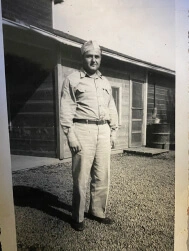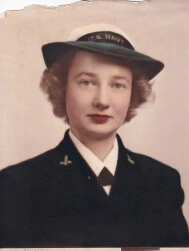VA Disability Rating for Sleep Apnea
Sleep apnea disrupts more than just your rest – it impacts every aspect of your daily life. And now, with VA’s complex rating system and major changes coming in 2025 that could slash ratings for new claims, understanding your rights has never been more critical.
If you’re battling sleepless nights and exhausting days due to service-connected sleep apnea, you deserve every penny of compensation you’ve earned. But here’s the reality – VA’s rating system is a maze of regulations, and one wrong turn could cost you thousands in benefits.
We’re here to arm you with the knowledge you need to fight back. We’ll break down exactly how VA rates sleep apnea, what evidence you need to win, and what to do if you receive a rating decision you don’t agree with.
Sleep Apnea Recognized by the VA
The VA recognizes several types of sleep apnea that can qualify for disability benefits.
Obstructive Sleep Apnea (OSA)
The most common form of sleep apnea among veterans, OSA occurs when throat muscles relax during sleep, blocking the airway and causing breathing interruptions. Common symptoms include:
- Loud snoring
- Gasping for air during sleep
- Morning headaches
- Difficulty concentrating
- Excessive daytime sleepiness
Central Sleep Apnea
Less common but often more serious, central sleep apnea occurs when your brain doesn’t send proper signals to the breathing muscles. This type is frequently connected to:
- Traumatic Brain Injury (TBI)
- Heart failure
- Medications prescribed for service-connected conditions
- High-altitude exposure during service
Complex/Mixed Sleep Apnea
Also called treatment-emergent central sleep apnea, this condition combines elements of both obstructive and central sleep apnea. It often develops after starting CPAP treatment for OSA.
Establishing Service-Connection for Sleep Apnea
To receive VA disability benefits for sleep apnea, you must establish a service connection. Here are the primary pathways:
Direct Service Connection
If your sleep apnea began during military service, you can establish a direct service connection. This requires:
- Current diagnosis through a sleep study
- Evidence of in-service event or onset
- Medical nexus linking current condition to service
Secondary Service Connection
Sleep apnea is often connected to other service-connected conditions:
- PTSD and other mental health conditions
- Traumatic Brain Injury (TBI)
- Rhinitis or sinusitis
- Weight gain from service-connected conditions
- Diabetes
- Heart conditions
FOR EXAMPLE – If you have service-connected PTSD that led to weight gain, which then caused sleep apnea, you may be eligible for a secondary service connection.
VA Disability Rating Criteria for Sleep Apnea
Your sleep apnea rating can mean the difference between struggling to get by and receiving the full compensation you deserve. But VA’s rating system for some respiratory and mental health conditions is changing. You need to understand both the current system and what’s coming.
Current Rating Criteria (Through March 2025)
VA rates sleep apnea under Diagnostic Code 6847. As of 2024, the VA’s Schedule for Rating Disabilities outlines the following criteria:
- 100% Rating:
- Chronic respiratory failure with
- carbon dioxide retention, or
- Cor pulmonale (right heart failure); or
- Required tracheostomy
- Chronic respiratory failure with
- 50% Rating:
- Requires use of breathing assistance device (CPAP)
- Documented sleep study showing need for CPAP or other breathing device
- 30% Rating:
- Persistent daytime hypersomnolence
- Impact on daily activities and work
- No requirement for breathing assistance
- 0% Rating:
- Documented sleep disorder
- Asymptomatic
- No current treatment required
New Rating Criteria (Effective April 2025)
Starting April 2025, VA is completely changing how they rate sleep apnea. Here’s what they’re planning:
- 0% Rating:
- Symptoms fully controlled by treatment
- Documented compliance with prescribed therapy
- No impact on daily functioning when using treatment
- 10% Rating:
- Persistent symptoms despite treatment
- Partial response to therapy
- Documented side effects or complications
- Some impact on daily activities
- Higher Ratings:
- Reserved for cases with severe complications
- Treatment resistance or ineffectiveness
- Significant medical complications
- Substantial impact on earning capacity
And if VA has denied your claim or given you a lowball rating under the current system, you should appeal before these new rules take effect. After April 2025, you may still be grandfathered into the more favorable rating guidelines if you initially filed before the change, but getting the rating you deserve may be more of an uphill battle.
If VA has denied your sleep apnea claim or given you a rating that doesn’t match the severity of your condition, don’t wait to fight back. Contact us today – we’ve successfully appealed countless decisions, and we’ll put that experience to work for you.
Strengthening Your Sleep Apnea Claim
Whether you’re filing an initial claim or seeking an increased rating, here are some tips to give yourself the best shot:
- Get a sleep study. This is the gold standard for diagnosing sleep apnea.
- Be detailed in describing your symptoms. How does fatigue impact your work? Your relationships? Your daily routine?
- Gather buddy statements. If others have noticed your symptoms, their accounts can be powerful evidence.
- Consider secondary service connection. If you have other service-connected conditions that could be contributing to your sleep apnea, make that case.
Most importantly, don’t try to appeal a sleep apnea denial or lowball rating alone. VA’s appeals process is designed to frustrate veterans into giving up. Our experienced attorneys know their playbook, and we know how to win these appeals.
Appealing the VA’s Decision on Your Sleep Apnea Claim
At ProVet Legal, our veterans’ law attorneys know how to take on VA and win sleep apnea appeals. We’ve successfully fought countless lowball ratings and wrongful denials. We know what evidence works, which legal arguments succeed, and how to avoid VA’s procedural traps.
If you’ve been denied benefits or given a lower rating than you deserve, don’t lose hope. You have the right to appeal, and we can help you make your case.
Sleep apnea may be robbing you of your rest, but you don’t have to let it rob you of the benefits you’ve earned. If you’re ready to fight for the compensation you deserve, we’re ready to stand with you.
Contact us today to discuss your rights and options.



